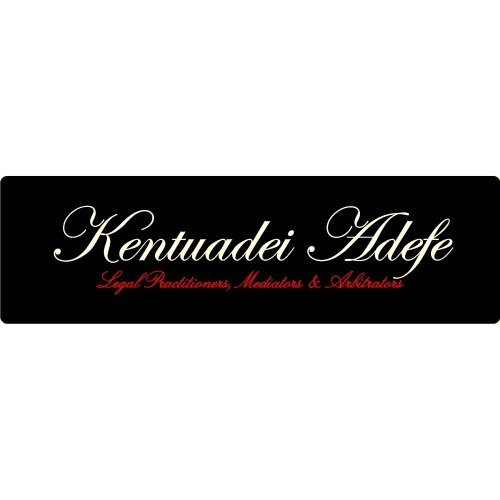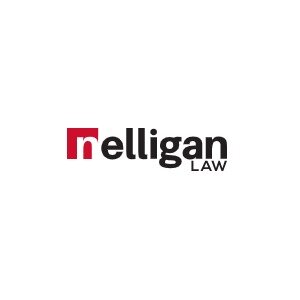Best Water Law Lawyers in Ottawa
Share your needs with us, get contacted by law firms.
Free. Takes 2 min.
List of the best lawyers in Ottawa, Canada

KENTUADEI ADEFE, FOREIGN LEGAL CONSULTANT ON NIGERIAN LAW
15 minutes Free ConsultationAbout Water Law in Ottawa, Canada
Water Law in Ottawa, Canada, governs the use, management, and protection of water resources within the city and surrounding areas. This legal field covers rights and obligations related to lakes, rivers, streams, groundwater, wetlands, and stormwater systems. Given Ottawa's location along the Ottawa River and its numerous watercourses, Water Law intersects with environmental regulations, municipal bylaws, Indigenous rights, and provincial and federal legislation. The aim is to balance the needs of individuals, businesses, and the community, while safeguarding water quality and ecosystem health.
Why You May Need a Lawyer
You may need legal assistance with Water Law matters in Ottawa for a variety of reasons. Common situations include:
- Disputes over water rights or access, especially for properties near lakes, rivers, or wetlands
- Concerns regarding floodplain management or changes to natural water flows
- Regulatory compliance issues for rural landowners, farmers, or businesses discharging water or pollutants
- Development projects that affect wetlands, shorelines, or watercourses
- Challenges related to permits for water usage, construction near water, or alteration of water bodies
- Issues involving contaminated groundwater or surface water and the need for remediation
- Environmental enforcement actions or liability for water-related damages
- Involvement in public consultations or hearings about water management plans or zoning changes
- Assertion of Indigenous or riparian rights involving traditional water access or use
- Securing compensation for damages due to flooding or improper drainage
A lawyer experienced in Water Law can help interpret complex regulations, represent your interests before authorities, and ensure you comply with all necessary legal requirements.
Local Laws Overview
Water Law in Ottawa is shaped by a combination of federal, provincial, and municipal statutes and regulations. Key legal aspects include:
- Federal Regulation: The federal government oversees water related to fisheries, navigation, and transboundary issues primarily through the Fisheries Act and the Canadian Environmental Protection Act.
- Provincial Laws: Ontario's Ontario Water Resources Act, Environmental Protection Act, Lakes and Rivers Improvement Act, and Clean Water Act govern water quality, access, allocation, and environmental protection.
- Municipal Bylaws: The City of Ottawa manages stormwater, sanitary sewer regulations, and floodplain development through its own bylaws, zoning regulations, and special permits. The City also enforces rules for water conservation, drainage systems, and public infrastructure projects.
- Watershed Management: Conservation authorities such as the Rideau Valley, Mississippi Valley, and South Nation Conservation Authorities regulate activities affecting shorelines, wetlands, and watercourses, issuing permits and conducting reviews.
- Indigenous Rights: Indigenous communities may have traditional and treaty-based water rights that affect development, access, and stewardship of water resources.
Violations of water laws can result in fines, orders to remediate, or legal action. Understanding which jurisdiction applies, and how multiple regulations may interact, is critical for any property owner, business, or developer in Ottawa.
Frequently Asked Questions
What sorts of water rights exist in Ottawa?
In Ottawa, water rights generally relate to access, reasonable use, riparian rights (if your property borders water), and the right to take or use water under provincial permits. Absolute rights to own water are not granted.
Can I alter or build near a shoreline or wetland on my property?
No, you must seek permission from the local conservation authority and possibly the City of Ottawa. Strict regulations protect shorelines and wetlands due to their ecological value and flood prevention role.
What permits might I need for a waterfront development?
Depending on the location and scope, you may need permits from the City of Ottawa, a local conservation authority, and possibly provincial or federal agencies. Common permits include site alteration, building, and environmental approvals.
What should I do if flooded water from a neighbour’s property damages mine?
You should document the damage, contact your local conservation authority or city officials, and consult a lawyer. Liability for alterations that increase flooding can often be established under civil law.
Who enforces water quality laws in Ottawa?
Enforcement is shared by federal and provincial governments, the City of Ottawa, and conservation authorities. Each may investigate pollution or illegal water use and has power to issue enforcement orders and fines.
Are there restrictions on using groundwater or drilling a well?
Yes, Ontario’s laws and local bylaws govern well construction, licensing, and water taking. Permits may be required, and wells must not impact neighbors or the environment.
How is water pollution or contamination handled legally?
Contaminating water is strictly prohibited. Polluters can face significant penalties and may be ordered to clean up the damage. Victims can also seek compensation through civil court.
Can Indigenous groups restrict water use or development?
Certain treaties and agreements may recognize Indigenous water rights. Consultation with First Nations is often required if projects may impact their traditional waters or rights.
Is stormwater runoff regulated?
Yes, the City of Ottawa and conservation authorities regulate where and how stormwater is managed to reduce flooding, prevent pollution, and protect waterways.
How can I appeal a water-related permit denial or order?
Most permit decisions can be appealed to Ontario’s Environmental Review Tribunal or another tribunal. A lawyer can help you prepare your appeal and present your case.
Additional Resources
- City of Ottawa Environmental Services: Information on water bylaws, permits, and programs
- Ontario Ministry of the Environment, Conservation and Parks: Laws and guidance on water use, quality, and protection
- Rideau Valley, Mississippi Valley, and South Nation Conservation Authorities: Shoreline, wetland, and development permits
- Surface and Drinking Water Source Protection programs for the Ottawa area
- Ontario Clean Water Agency: Support with water treatment and compliance
- The Environmental Commissioner of Ontario: Reports and advice on environmental protection and water issues
- Indigenous Services Canada: Information on Indigenous water rights and consultation processes
- Law Society of Ontario Referral Service: Find a qualified Water Law lawyer in Ottawa
Next Steps
If you need legal help with a water issue in Ottawa, start by gathering all relevant documentation, such as property deeds, permit applications, correspondence from authorities, and photographs. Identify the specific water law challenge you are facing, such as a permit denial, regulatory order, pollution allegation, or property dispute.
Next, consult a lawyer experienced in Water Law or environmental law who practices in Ottawa. Many lawyers offer initial consultations to help you understand your legal rights and options. They can advise on compliance, negotiate with authorities or other parties, represent you in appeals, or litigate if necessary.
Do not delay seeking legal advice, especially if you face fines, remediation orders, or deadlines for appeal. With the right support, you can protect your interests, comply with all requirements, and help preserve Ottawa’s precious water resources.
Lawzana helps you find the best lawyers and law firms in Ottawa through a curated and pre-screened list of qualified legal professionals. Our platform offers rankings and detailed profiles of attorneys and law firms, allowing you to compare based on practice areas, including Water Law, experience, and client feedback.
Each profile includes a description of the firm's areas of practice, client reviews, team members and partners, year of establishment, spoken languages, office locations, contact information, social media presence, and any published articles or resources. Most firms on our platform speak English and are experienced in both local and international legal matters.
Get a quote from top-rated law firms in Ottawa, Canada — quickly, securely, and without unnecessary hassle.
Disclaimer:
The information provided on this page is for general informational purposes only and does not constitute legal advice. While we strive to ensure the accuracy and relevance of the content, legal information may change over time, and interpretations of the law can vary. You should always consult with a qualified legal professional for advice specific to your situation.
We disclaim all liability for actions taken or not taken based on the content of this page. If you believe any information is incorrect or outdated, please contact us, and we will review and update it where appropriate.








